In the Flow
Bathing is an ordinary routine for most of us, but Manjari Sharma’s shower is more than a place for a daily lather and rinse. It’s a confessional, a temple, and, for believers, an incarnation of the river Ganges.
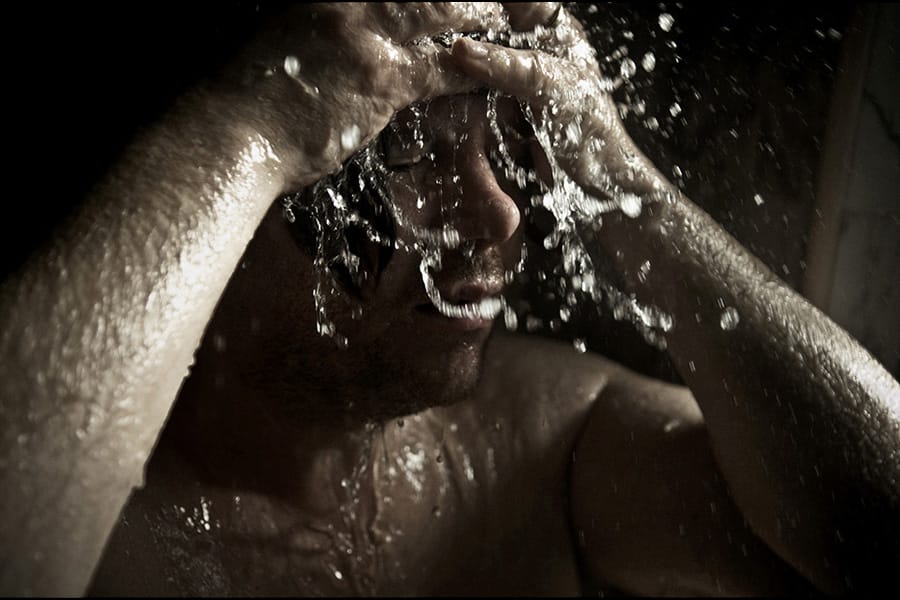
Interview by Nicole Pasulka
Can you describe how the “Paani,” photographs came to be?
Paani means water in my language (Hindi—ed.). I was actually centering my showers around this light that came in through my bathroom window. For one hour, it turned my shower space into this glorious sun room, and then I invited my first subject to shower in that space for me. So, in essence, the project started in a very simple way—following the light, and my heart of course. But as I studied what happened to these people as they showered for me, I felt there was a ritualistic unveiling of the mind. The walls that somehow surround us and restrict us came down in the shower and made people say some very personal things about their life to me. In my artist statement, I attribute it to the intimacy of standing in the same bathtub, the washing down of the water, and the shower thereby transforming into a confessional. Continue reading ↓
The photographs in Manjari Sharma’s solo show, “Paani,” at Richard Levy, offer up both intimate and awesome perspectives on a basic human need. All images used with permission, © copyright the artist, all rights reserved.
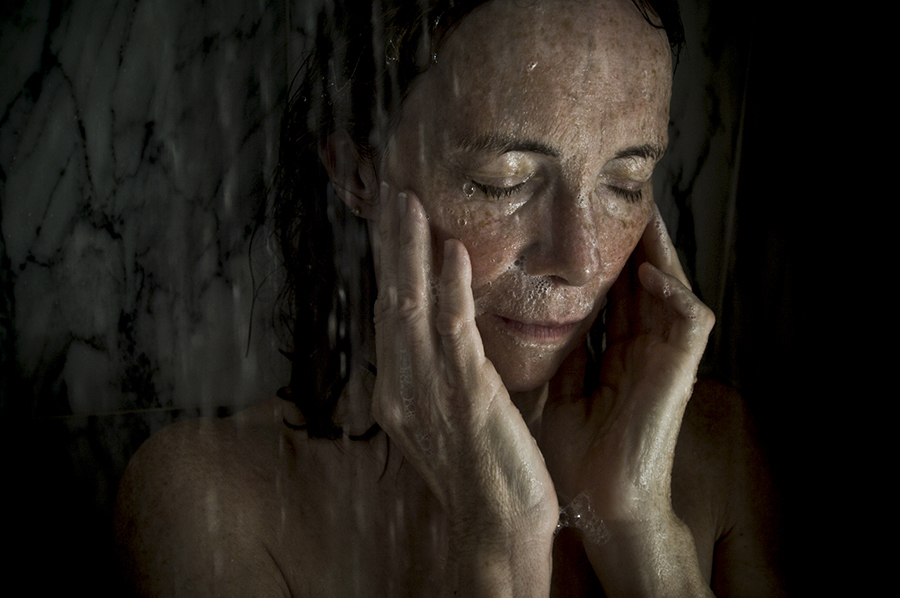
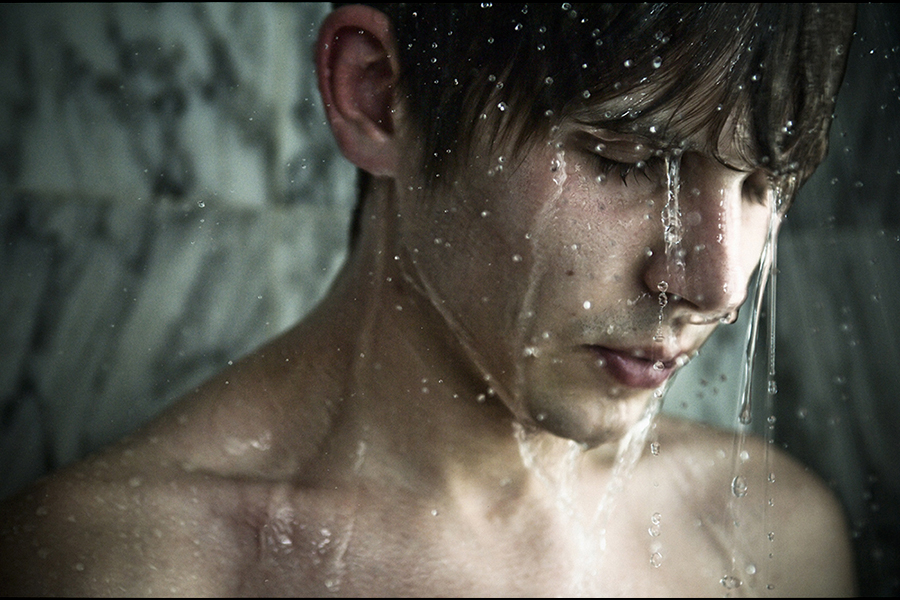
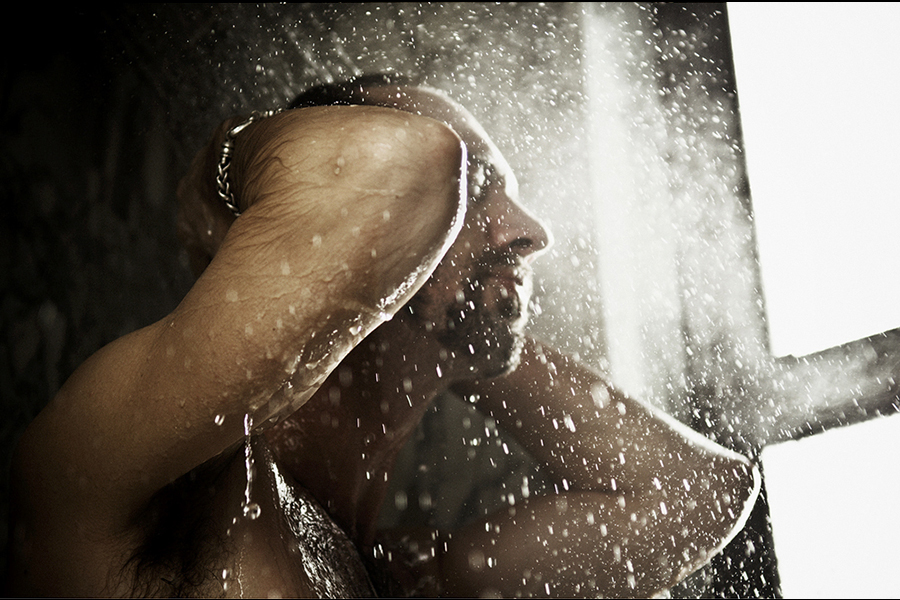
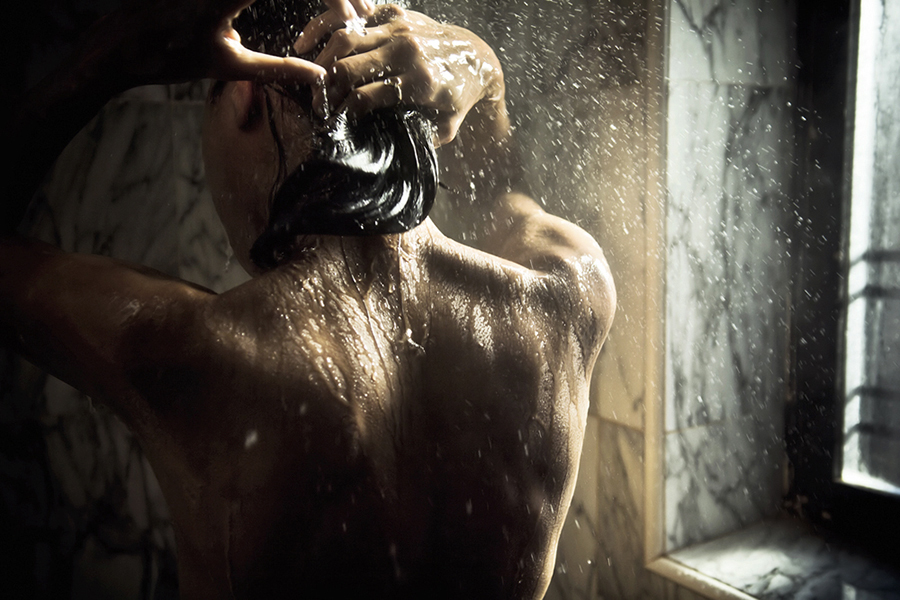

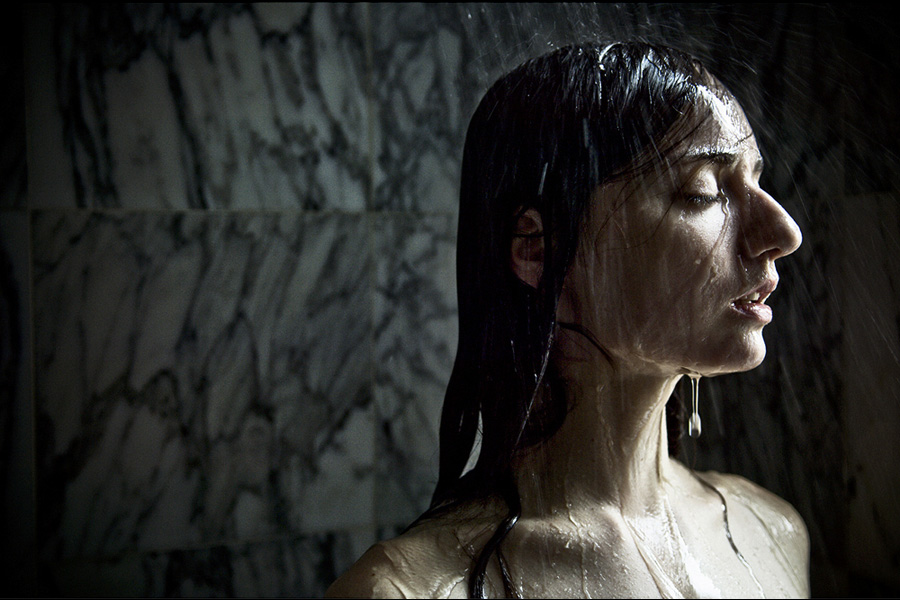
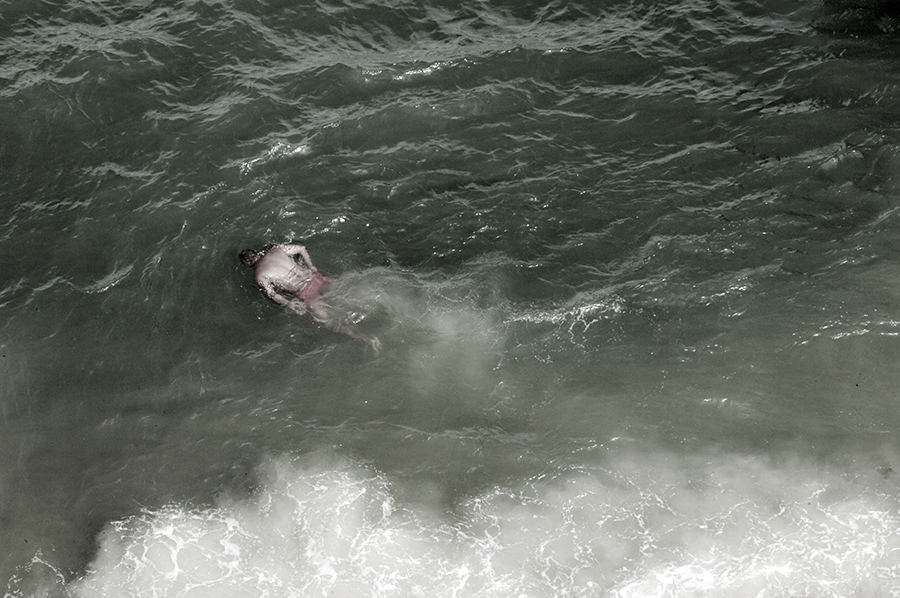
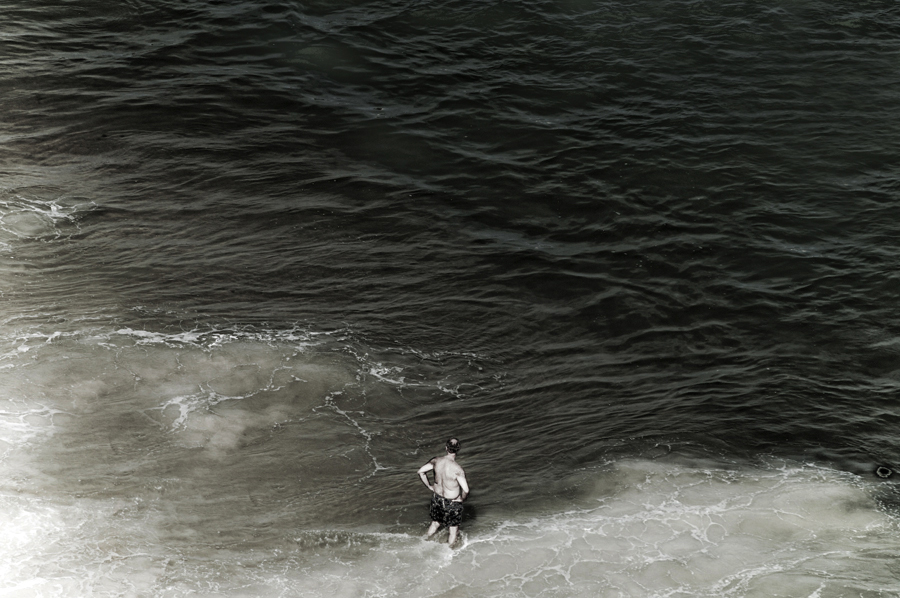
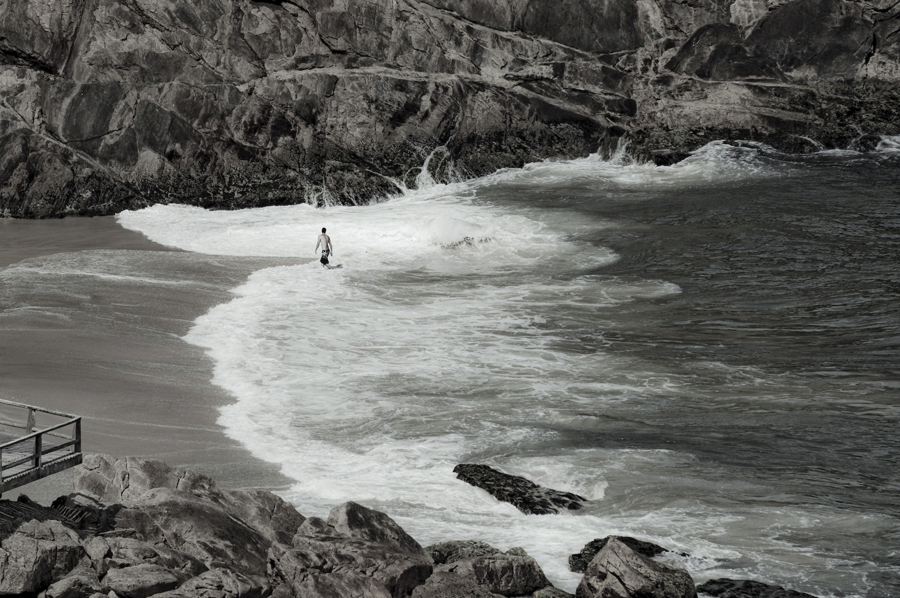

Interview continued
What’s the particular power or significance of the water of the Ganges?
The river Ganges is considered the holiest and most sacred river in India. According to Hindu mythology, Ganga descends on the Earth to rinse away the sins of mankind. In India, the river is worshipped as a goddess and a mother. The belief is that bathing or taking a dip in the river on special celestial occasions causes one’s sins to be washed away. People also immerse the ashes of their kin in the waters of Ganga, with a belief that the ashes would go to heaven.
And your apartment’s shower can evoke, replicate, or approximate this experience?
There is a saying in India that “If you choose to believe that what you see is the holy mother Ganges, then it is. If you don’t then it’s nothing but flowing water.”
In some ways every time we take a shower and indulge in the act of shedding, pouring, coming undone, cleansing, we partake in renewing ourselves. When people take a dip in the holy river Ganges, their sins are only as washed away as their faith allows them to believe.
The word Ganga is derived from the etymological root “gam,” meaning to “to let go” or “to set free.” When we shower by ourselves, we experience technically a purification of the body. During this project, as I mentioned earlier, many people shared some intimate secrets of their life with me. The water did what flowing water does, allowed them to feel vulnerable, bare, cleansed; the faith and the acquired comfort within that intimate space allowed them to additionally release, allowing their hearts to open up and let go. In both cases, whether in the Ganges or in my shower, the power of paani and faith were at play.
Have you worked in your apartment before? Is there some way that doing this work in your own home, your bathroom no less, affected your own relationship to the space?
Absolutely, and I am so glad that you bring this up. Every time I go into that space I am so acutely aware of what is happening to me. In everyday life, the mind, the heart, and the body can often be at angles to each other—opposing each other and struggling to work together. I feel the water negotiates a channel or a path that paves the way for a dialogue between the three. Between the sound of the water and the calm of the light, coupled with the compounded energy of so many that have graced that shower, I feel that the effect it has on my own mind has gotten more powerful.
How did you find your subjects?
My subjects were always second-, third-, and fourth-generation friends. I stayed away from people who were too close because I felt it took some of the nervous energy away.
It seems like the shoots would be pretty intimate in some cases. What were the shoots like?
People are sometimes amazed at how good they look, sometimes surprised by how sad or despondent they look, but often the shot is quite an honest depiction of how [the shoots] really feel. The shoots were often very organic, sometimes I would end up hanging out with a person for a long time after the shower. The most important part was to make sure I make them as comfortable as they can be for being nude in front of someone they don’t know extremely well.
Also, I have a lot of recorded audio clips, from people singing to fragments of advice, self-realizations and monologues, astonishments and gratitude.
What are some rewards and challenges of photographing water, or people in water and showering?
The challenges are to get them to forget the camera and know that there is only so much you can orchestrate with an uncontrollable force such as water. It will fall the way it wants to, you can’t shape it or mold it, you can only attempt to capture it. The camera is quite a force to reckon with and if a person is overwhelmed with a camera, a distraction like flowing water can be a bigger force to reckon with. As my subjects still wrestled before me to be comfortable and not so conscious of a photographer standing in the bathtub with them, they were already handed this water that streamed into their eyes, nose, and ears. This made for a very interesting fugue, one that I got addicted to experiencing over and over.
Do your approach, attitude, and interests differ when shooting intimate portraits as opposed to more large-scale landscapes?
In some ways it remains the same. I am willingly lost in the subject matter whether it is an open landscape or the person before me. In that sense the landscape is a portrait. My attitude continues to be a cocktail of romance, humility, and intrigue.
